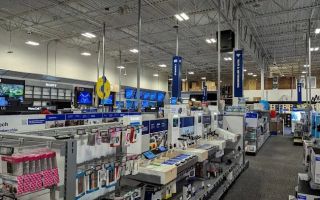How Often Do People Repair Their Computers? Exploring Repair Trends and Tips
- 1. Why Do People Repair Their Computers?
- 2. Common Computer Repair Issues
- 3. How Often Do People Repair Their Computers?
- 4. Tips for Avoiding Expensive Repairs
- 5. Why Invest in Preventive Maintenance?
1. Why Do People Repair Their Computers?
As technology continues to advance, the need for regular computer repairs has become more prevalent. Computers are essential tools in both personal and professional settings, so when they break down, it can cause significant disruptions. But what are the reasons that push people to repair their computers in the first place?
Some of the most common reasons include issues with performance, screen damage, slow processing, virus infections, and software problems. As our reliance on digital devices grows, so does the frequency of repairs, making it crucial to know when to repair your computer rather than replacing it.
2. Common Computer Repair Issues
There are several reasons people seek out computer repair services. Some of the most common issues include:
- Slow Performance: Over time, computers can accumulate unnecessary files or become overloaded with tasks, making them sluggish.
- Screen Cracks or Damage: Whether caused by accidental drops or pressure, damaged screens are a frequent repair issue.
- Virus and Malware Infections: Cyber threats are rampant, and a virus or malware can seriously affect a computer's performance and security.
- Hardware Failures: Hard drives, RAM, and other internal components can fail over time, especially if the computer is used heavily.
Understanding these common issues can help you decide when to call in a professional repair service or attempt a DIY fix.
3. How Often Do People Repair Their Computers?
The frequency of computer repairs largely depends on how heavily the device is used and the type of work it handles. On average, many users tend to repair their computers once every 1 to 2 years, especially if the device is used for work purposes or gaming. However, light users might find that their computers need repairs less frequently.
In some cases, a repair might be needed sooner if a computer is exposed to physical damage or suffers from a virus attack. However, some people avoid repairs altogether until a device completely stops working, while others prefer to maintain their computers regularly to avoid larger issues later on.
4. Tips for Avoiding Expensive Repairs
To reduce the frequency of repairs and avoid expensive fixes, there are a few simple tips you can follow:
- Keep Your System Updated: Regularly update your operating system and software to avoid vulnerabilities that could lead to problems.
- Use Antivirus Software: Protect your computer from viruses and malware by using reliable antivirus software.
- Regular Backups: Always back up your data in case your computer fails or gets corrupted.
- Clean Your Device: Dust and debris can cause internal components to overheat, leading to failures. Regularly clean the exterior and ensure vents are unobstructed.
By staying proactive, you can minimize the likelihood of needing repairs and extend the lifespan of your computer.
5. Why Invest in Preventive Maintenance?
Preventive maintenance is an essential investment if you want to avoid frequent computer repairs. Regular checkups, such as updating software, scanning for viruses, and cleaning your device internally, can help identify and resolve minor issues before they turn into major problems.
By investing in preventive maintenance, you can save money in the long run by reducing the need for costly repairs. Regular maintenance also boosts your device's performance, making it run more efficiently, which is especially crucial for professionals who depend on their computers for work.
If you're looking for reliable computer repair services, consider reaching out to Computer Repair for expert help in fixing and maintaining your devices.




























